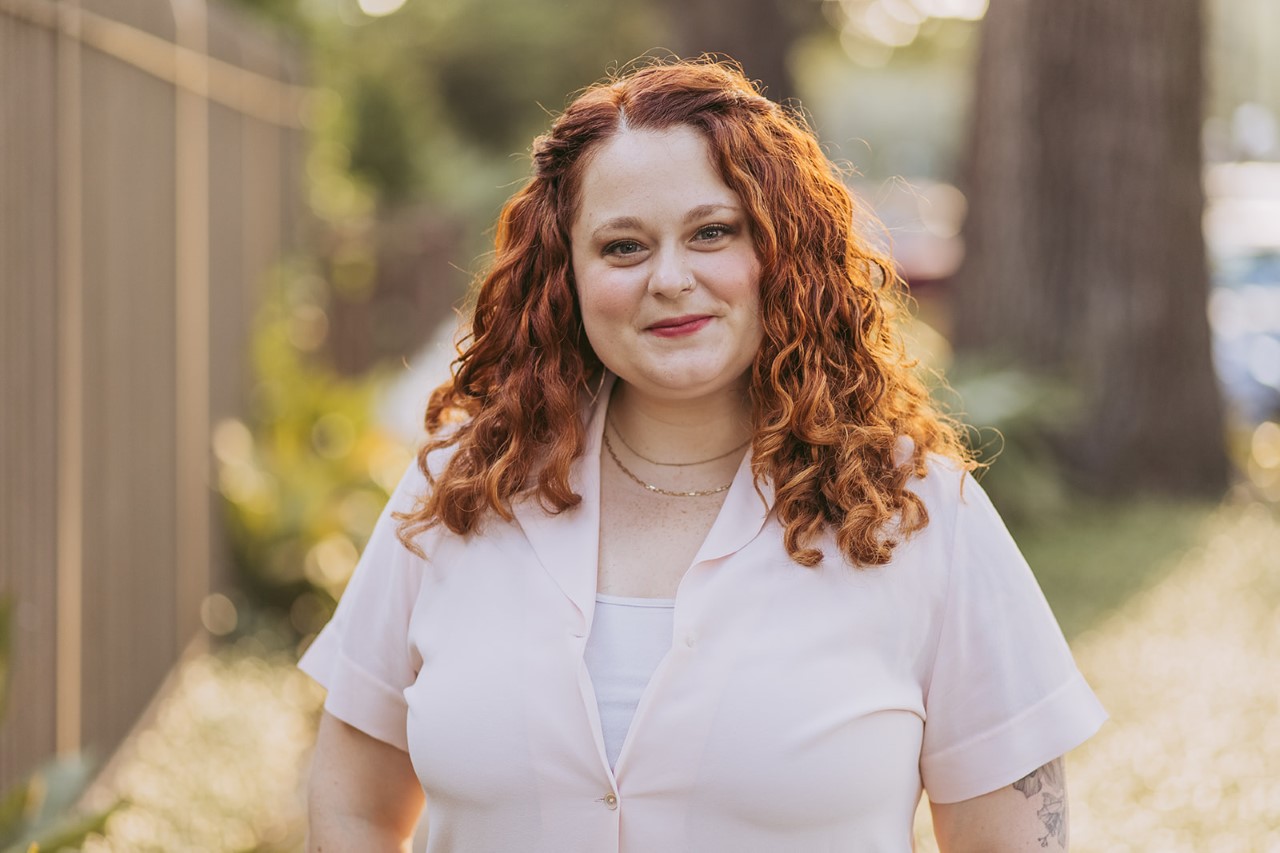
Having an established career in public health does not mean one is done learning. Working with individuals can foster a desire to develop additional knowledge, skills, and self-reflection to better serve communities. After years of working in reproductive health education, Valerie Pasquale chose to pursue a Master of Public Health degree in Community Health Sciences at the Tulane University School of Public Health and Tropical Medicine and become a Pincus Family Foundation Violence Prevention Scholar.
Having completed her undergraduate education at the University of Maryland Baltimore County, Valerie remained in Baltimore to work for Planned Parenthood. “Throughout that work, I interacted with people growing up in homes with violence. They would pull me aside after teaching a class and disclose abuse or their parents experiencing abuse,” she said.
A call to violence prevention led her to Tulane and her current interest in preventing intimate partner violence and child maltreatment. “I have such a heart for this work, and there’s still stigma when it comes to reporting,” she said. “This field is so complicated. What draws me to it is that children should be children and shouldn’t have to take on these adult things before they are ready. As adults, we should support them in having a healthy childhood.”
Toward that end, Valerie completed her field practicum as an Injury and Violence Prevention Intern with the Bureau of Family Health at the Louisiana Department of Health. She observed top down approaches and data collection and how to use those to guide programs and policies. Her projects included working on the initial stages of the state plan for preventing Adverse Childhood Experiences (ACEs), a Screening, Brief Intervention, and Referral to Treatment (SBIRT) protocol to address substance use disorder in college students, and legislative tracking.
Valerie’s goal in coming to graduate school was to gain practical skills. As a mid-level professional, she wanted to understand if the programs she was applying could and would have an impact. “I wanted to learn more about evaluation and monitoring and how to do data analysis,” she said. “But, I learned so much more. The Pincus program was so critical to that.”
What Valerie didn’t expect was to learn about herself and the role she has to play as someone who works in the public health field. She became familiar with the concept of praxis, which combines reflection and action. “I know now that I always need to be working on myself to work with these communities. I need to be self-aware,” she said. “I also need to understand that violence can take many avenues, and institutions can harm people. To gain trust after historical harm, we have to be patient and focus on relationship building.”
Valerie is grateful for her connection to the other Pincus scholars as well as professors and community partners. “I didn’t expect to take these deep conversations from my graduate program. I expected to come, get my skills, and get out. It’s been so much better than what I imagined thanks to my peers.”
This experience has come with advice that Valerie is taking with her after graduation. “Trust the process and check your own sense of urgency,” she said. “Step back and talk to people.”
As for the future, Valerie is moving to Gainesville, Florida to be the Victims of Crime Act Case Manager with the University of Florida Child Protection Team.
Valerie is a member of the first graduating cohort of the Pincus Family Foundation Violence Prevention Scholarship, an interdisciplinary, two-year scholarship program embedded within Tulane’s MPH program and the Violence Prevention Institute (VPI). Through unique experiential learning activities and a field practicum with a partner organization, scholars develop a specialized skill set to effectively collaborate with communities to prevent violence and promote health and well-being.
